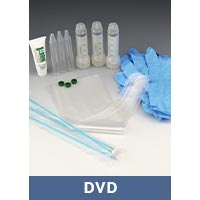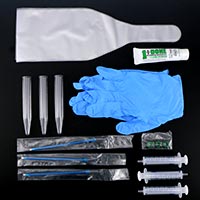When Will My Female Come Into Season?

If you own a female puppy and choose not to neuter it, you need to recognize when she comes into season. Females can be bred in their very first season. However, they are not mature enough to raise a litter at this age.
It's important to make sure that a bitch in season is kept away from male dogs for 3 weeks from the start of her season-this includes the entire heat cycle plus a few days for insurance.
Dogs come into season between 6 and 15 months of age. Smaller dogs seem to come into season sooner than larger breeds.
A female's cycle will last from 14 to 21 days. Younger dogs usually have shorter cycles. When they come into season, they will start to bleed from their vulva. Initially, the blood flow is just a few drops but as days pass, her flow will increase and her vulva will swell.
While there are no steadfast rules, normally a female will accept a male for breeding when she is in her 10th to 13th day of season. As she approaches, the blood flow will often (but not always) decrease and her vulva will swell.
The important thing that new dog owners need to learn is that they CANNOT let their female out of their eyesight for a minute during this 3-week period. They cannot leave it unattended out in the backyard even if the yard is fenced. Females become escape artists and roaming males will easily scale a fence for the opportunity to breed.
I had a friend who let her female out in the backyard and went back in the house for less than a minute to get a jacket. When she went outside, the bitch had climbed the fence and was gone only to return bred in 2 hours. This was a female WHO NEVER left the fenced yard.
Females who would never think of climbing the fence or visiting the neighbor's yard will change during their season. They will seek out males. So BE WARNED, keep her on leash and in your eyesight for 3 weeks. If you cannot do this, get your female spayed.
I recommend new owners start to recognize what their female's vulva looks like when she is not in season. By doing this, you will start to recognize changes. If you do this a couple of times a week, you will notice the drops of blood on her fur when she starts to bleed. Mark the date in your health record book.
Normal females come into season twice a year. Some can come in as often as 4 times a year but this is rare.
There is an old wive's tale that recommends females should not be neutered until after they have had a litter of pups, that this makes them better pets. This is not true. If you're only interest is in having a nice pet, neuter it at 6 months of age.
If you intend to breed, the rule of thumb is not to breed until the third season or until the dog is 18 months to 2 years old. Larger breeds need to have their hips x-rayed to confirm that they are not dysplastic before they are bred.
New owners need to also realize that if a female gets bred one time by one male, she can be bred again by a different male in the same season. Some people think that just because she was bred once that she will not be bred again. That's not correct. A female can have puppies from more than one male in the same litter.
My advice to anyone thinking about breeding is that you should think long and hard before you decide to breed your dog. I tell friends that they should walk in my shoes for 3 months of the breeding season. They will see just exactly how complicated and difficult it is to be a dog breeder.








0 Comments
Ask Cindy
Sorry, adding comments is currently disabled.